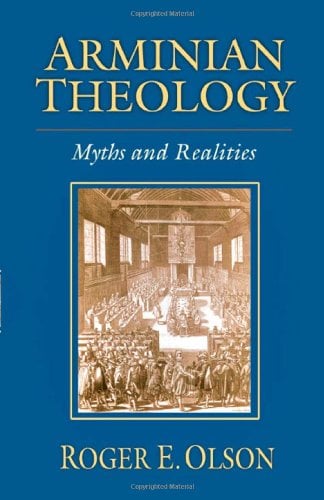BEN: On p. 89 you talk about the idea of nominalistic voluntarism, which is to say the idea that God is free to do anything he chooses to do, without being constrained or limited by the divine character. This idea is denied by Arminius, but seems to be affirmed by various Calvinists, especially those who see God’s will as his primary attribute, and even his knowledge is based entirely on what he had already preordained. What are the problems with nominalistic voluntarism? Does this concept suggest God can be arbitrary if He desires, and doesn’t have to act in accord with his moral character? Would this even imply that God could sin if he wanted to do so? Why is Arminius’ assertion that “God is not freely good, because he is good by nature” a better and more Biblical understanding of the character of God?
ROGER: This takes a lot of unpacking. I’ve done it on my blog several times. I do suspect that nominalistic voluntarism, the claim that something is automatically good just because God does it and that God does not have a moral character that governs what he can do, lies in the background of much Calvinism. In my conversations with Calvinist, when I push hard on the issue of the morality of double predestination and the Holocaust, etc., eventually my Calvinist conversation partners end up appealing to “whatever God does is good just because God does it” and “God is not limited to our ideas of good” by which they mean that God’s “goodness” is whatever he decides to do. This is a huge problem. It makes God not only predictable but untrustworthy. Why trust the Bible if God might be lying to us? Nominalistic voluntarism inevitably portrays a “hidden God,” a God behind God revealed in Jesus Christ—an unknown and unknowable God who might be anything. On such a basis, in such a philosophy, we cannot be absolutely certain God will keep his promises; he doesn’t have to.
BEN: Various Arminians along the way (me included), who are quite orthodox, nonetheless have some issues with the Greek notions of immutability and impassability as applied to God. It would seem clear from Scripture that God does have feelings, and that God emotionally suffers at times. It would also seem clear that it’s hard to deny that the incarnation involves God incorporating change into the divine being. Personally, when I hear texts like ‘Jesus Christ, the same yesterday, today, and forever’ trotted out to support immutability, I respond that this refers to the fact that Jesus’ character is unchanging and reliable. It doesn’t mean that other sorts of changes could not be incorporated into his existence. How would you respond to these sorts of issues?
ROGER: I agree completely with what you say. God’s immutability is God’s faithfulness to his character and promises. And God’s omnipotence simply means he can do anything consistent with his character.












